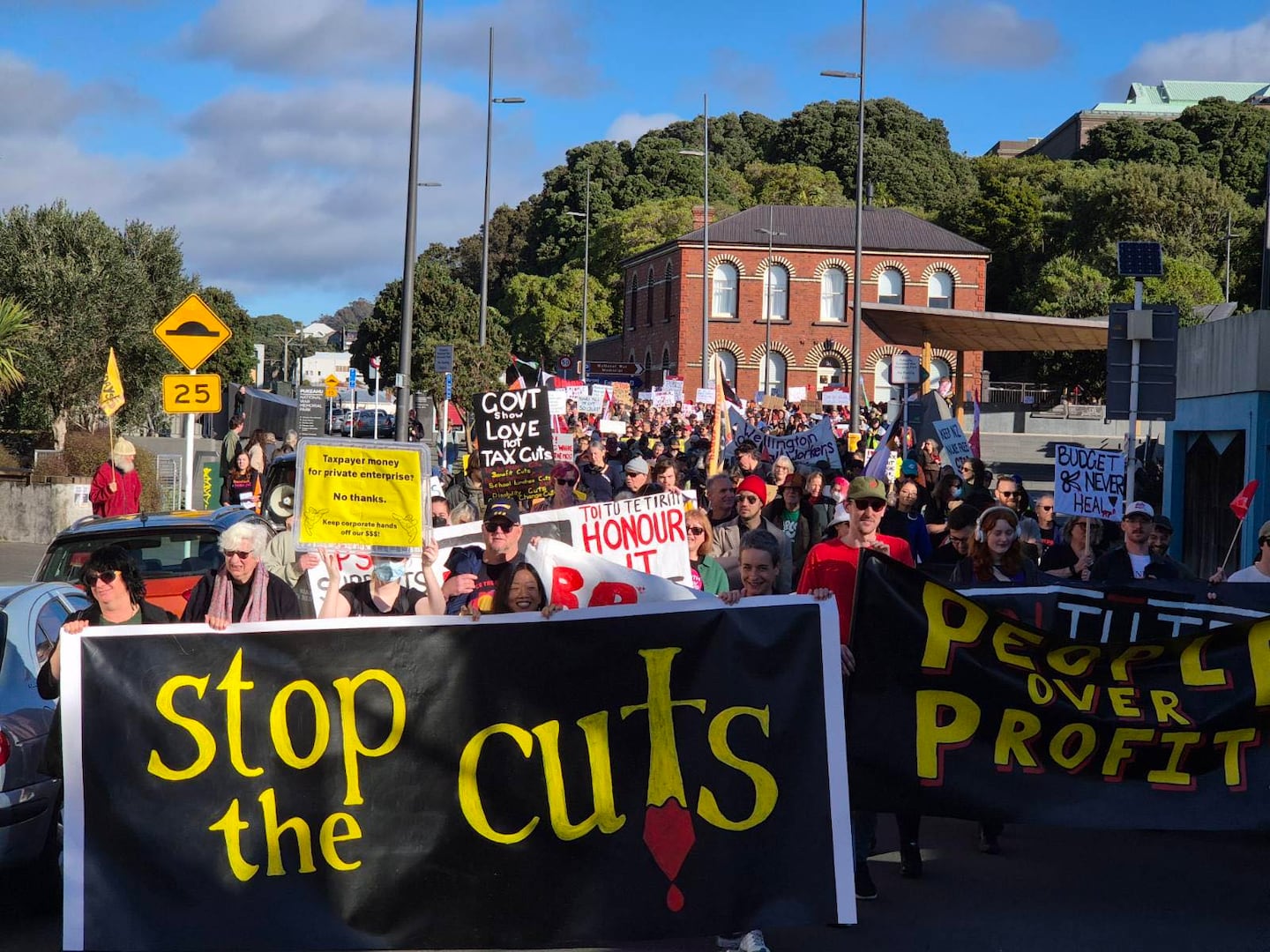Thousands marched in Wellington in the weekend in response to enormous cuts to public services and what they called a “mass transfer of wealth” from public to private sectors.
ActionStation director Kassie Hartendorp (Ngāti Raukawa, Ngāti Pareraukawa, Ngāti Tūwharetoa), who organised the rally, told Te Ao Māori News the march was about economic justice.
ActionStation was joined by people from over 20 trade unions and community organisations. It included speakers representing early childhood education, health, housing, the care and support sector, disability rights, queer and trans services and other public servants.
“We realise that we’re all experiencing the cuts and we’re stronger when we stand together,” Hartendorp said.
What is austerity?
“The government’s take on what we would say are austerity programmes and what that means is they basically cut back on public spending.”
This includes hospitals, schools, housing, public transport, and other things considered a public good. These cuts impact those without wealth more as they can’t pay for private hospitals or schools.
“When you start pulling things out of public services, our hospitals keep failing, our schools keep failing. It starts to clear the way for big corporations, big companies, wealthy individuals to be able to start providing their service instead.”
Last Thursday RNZ reported there were 5996 people who had lost their jobs in the public sector.
“The idea that moving collective wealth into the hands of a few and hoping it trickles down, is becoming less and less convincing to everyday people- and the government’s programme of austerity has driven this home.”
The reality of the promised tax cuts
A big part of National’s electoral campaign was the promise of tax cuts of up to $250 extra a fortnight but Hartendorp said this turned out to be only 0.2% of the country’s households - 3000 out of 1.63 million.
“Our kaumatua on the pension will get an extra $4.50 a week. People on the benefits will lose $40 a week. And while that’s happening our richest landlords will get a $2.9 billion dollar tax break.”
Hartendorp said the two couldn’t be looked at separately - with cuts to public services and gains for the private sector (such as energy companies, supermarkets, banks, landlords, and property investors).
“The poor are getting poor and the rich are getting richer.”
“On one hand, we might get, say, $20 a week more in our tax cut but we have public transport subsidies going away. We have to pay more to go on buses or trains or we have to pay more at supermarkets to be able to get our food. So it’s a bit dishonest to say that we’re getting something out of this.”




